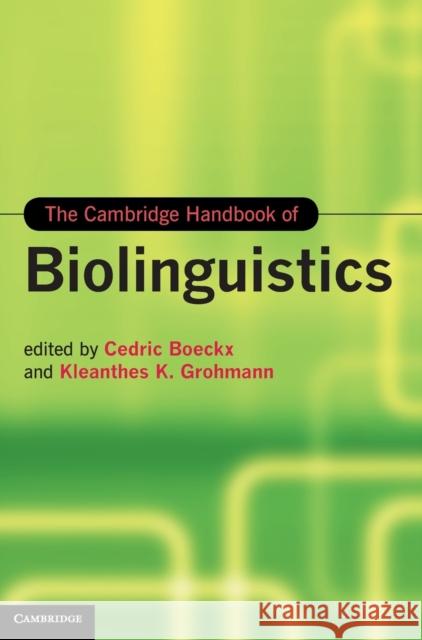The Cambridge Handbook of Biolinguistics » książka
topmenu
The Cambridge Handbook of Biolinguistics
ISBN-13: 9780521761536 / Angielski / Twarda / 2013 / 704 str.
The Cambridge Handbook of Biolinguistics
ISBN-13: 9780521761536 / Angielski / Twarda / 2013 / 704 str.
cena 493,50
(netto: 470,00 VAT: 5%)
Najniższa cena z 30 dni: 483,59
(netto: 470,00 VAT: 5%)
Najniższa cena z 30 dni: 483,59
Termin realizacji zamówienia:
ok. 22 dni roboczych.
ok. 22 dni roboczych.
Darmowa dostawa!
The most comprehensive state-of-the-field survey of biolinguistics available.











